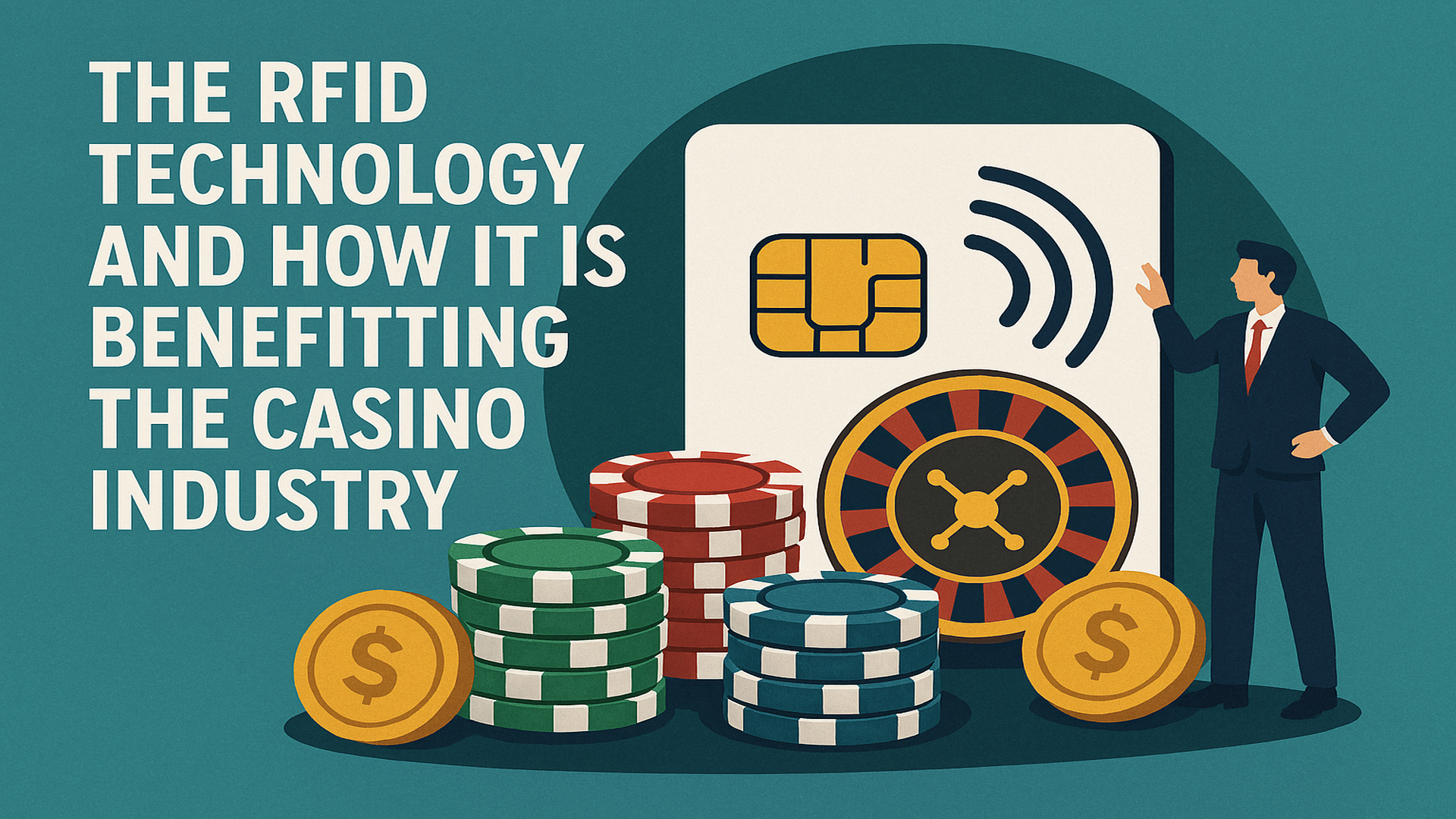The casino industry has always been at the forefront of adopting advanced technologies to ensure security, improve operational efficiency, and enhance the customer experience. One such innovation that has gained momentum in recent years is Radio Frequency Identification (RFID) technology. Initially used in logistics, retail, and manufacturing, RFID is now playing a crucial role in transforming the way casinos operate. By embedding RFID chips into casino tokens, playing cards, and other assets, operators can track activities in real time, minimize fraud, and create a safer and more transparent gaming environment.
Table of Contents
What is RFID Technology?
RFID technology uses electromagnetic fields to automatically identify and track tags attached to objects. Each tag contains electronically stored information that can be read by a scanner, even without direct line-of-sight. In casinos, RFID is commonly embedded in chips, player cards, and security systems, allowing seamless monitoring of movements and transactions across the gaming floor.
Benefits of RFID in the Casino Industry
- Enhanced Security and Fraud Prevention
- Accurate Tracking of Casino Assets
- Streamlined Operations
- Improved Customer Experience
- Regulatory Compliance and Transparency
Enhanced Security and Fraud Prevention
One of the biggest challenges in the casino industry is counterfeit chips. Traditional chips can be duplicated, leading to significant losses. RFID chips solve this problem by embedding unique identifiers that are virtually impossible to replicate. Scanners across tables and cash-out counters instantly verify authenticity, reducing the risk of counterfeit activities.
Moreover, RFID allows casinos to track chips throughout the premises. If a stolen chip is brought to a table or cashier, the system can flag and reject it. This capability not only safeguards casino revenue but also builds trust among players.
Accurate Tracking of Casino Assets
Casinos deal with massive volumes of chips, cards, and cash daily. RFID makes it possible to track these assets with precision. Every chip with an RFID tag can be monitored—whether it is at a table, in transit, or at the cashier’s desk. This provides operators with a clear view of their inventory in real time, helping prevent mismanagement or internal theft.
For example, RFID-enabled playing cards are increasingly being used to track card movements and detect anomalies during games. This ensures fair play and helps prevent cheating by players or even dealers.
Streamlined Operations
With RFID, casinos gain access to valuable data that can optimize operations. For instance, RFID readers at tables can instantly record bets, winnings, and losses without manual intervention. This reduces the time spent on audits and reconciliations. The technology also minimizes human errors, ensuring smoother and more efficient game management.
In addition, RFID data can provide insights into player behavior. Casinos can identify high-value players, monitor their betting patterns, and offer personalized services or rewards, enhancing customer satisfaction.
Improved Customer Experience
The casino industry thrives on customer engagement and loyalty. By leveraging RFID, casinos can offer seamless experiences such as faster chip validation, instant payouts, and personalized loyalty rewards. For example, RFID tracking allows casinos to monitor how much time a customer spends at specific games and tailor promotions accordingly.
Players also benefit from a heightened sense of security, knowing that fraudulent activities are minimized. This builds confidence in the casino environment, making players more likely to return.
Regulatory Compliance and Transparency
Casinos operate under strict regulations, and maintaining transparency is critical. RFID provides comprehensive tracking and reporting capabilities, making it easier for casinos to comply with audit requirements. Detailed logs of chip movements, transactions, and betting activities can be generated instantly, reducing the risk of compliance violations and penalties.
Real-World Adoption
Many major casinos in Las Vegas, Macau, and Singapore have already integrated RFID systems into their operations. For example, casinos in Macau were among the first to use RFID-embedded chips to combat counterfeiting and track high-roller activities. Similarly, leading resorts in Las Vegas employ RFID chips to analyze game performance and customer engagement, further proving the effectiveness of this technology in high-stakes environments.
Challenges and Future Outlook
While RFID offers numerous advantages, its adoption comes with challenges such as high implementation costs and the need for staff training. However, as technology evolves and becomes more affordable, its integration will become more widespread. Future innovations may combine RFID with artificial intelligence and blockchain for even greater security, predictive analytics, and player personalization.
Conclusion
RFID technology is revolutionizing the casino industry by addressing long-standing issues of security, fraud, and operational inefficiencies. From counterfeit prevention to real-time tracking and improved customer experiences, RFID is proving to be a game-changer. As casinos continue to embrace this technology, the industry can expect higher levels of trust, efficiency, and profitability in the years to come.
You may also like to read:


This article clearly explains how RFID tech is revolutionizing casinos, making them safer and more efficient. I find it fascinating to see how it combats counterfeiting and enhances the player experience with seamless transactions.unblocked games 67
Thank you for your time and sharing your feedback here.
The article effectively highlights how RFID is revolutionizing casinos, enhancing security, and improving operations. Its fascinating to see technology tackle challenges like counterfeiting while also enhancing the player experience.crazy-cattle-3d
Thank you for your time and sharing your feedback here.
The article clearly explains RFIDs vital role in modern casinos, enhancing security and efficiency. Its fascinating to see how technology like this reshapes the gambling experience for better.manus pricing
Thank you for your time and sharing your feedback here.
This article clearly explains how RFID tech is revolutionizing casinos, making them safer and more efficient. I find it fascinating to see how it combats counterfeiting and enhances the player experience with seamless transactions.badminton